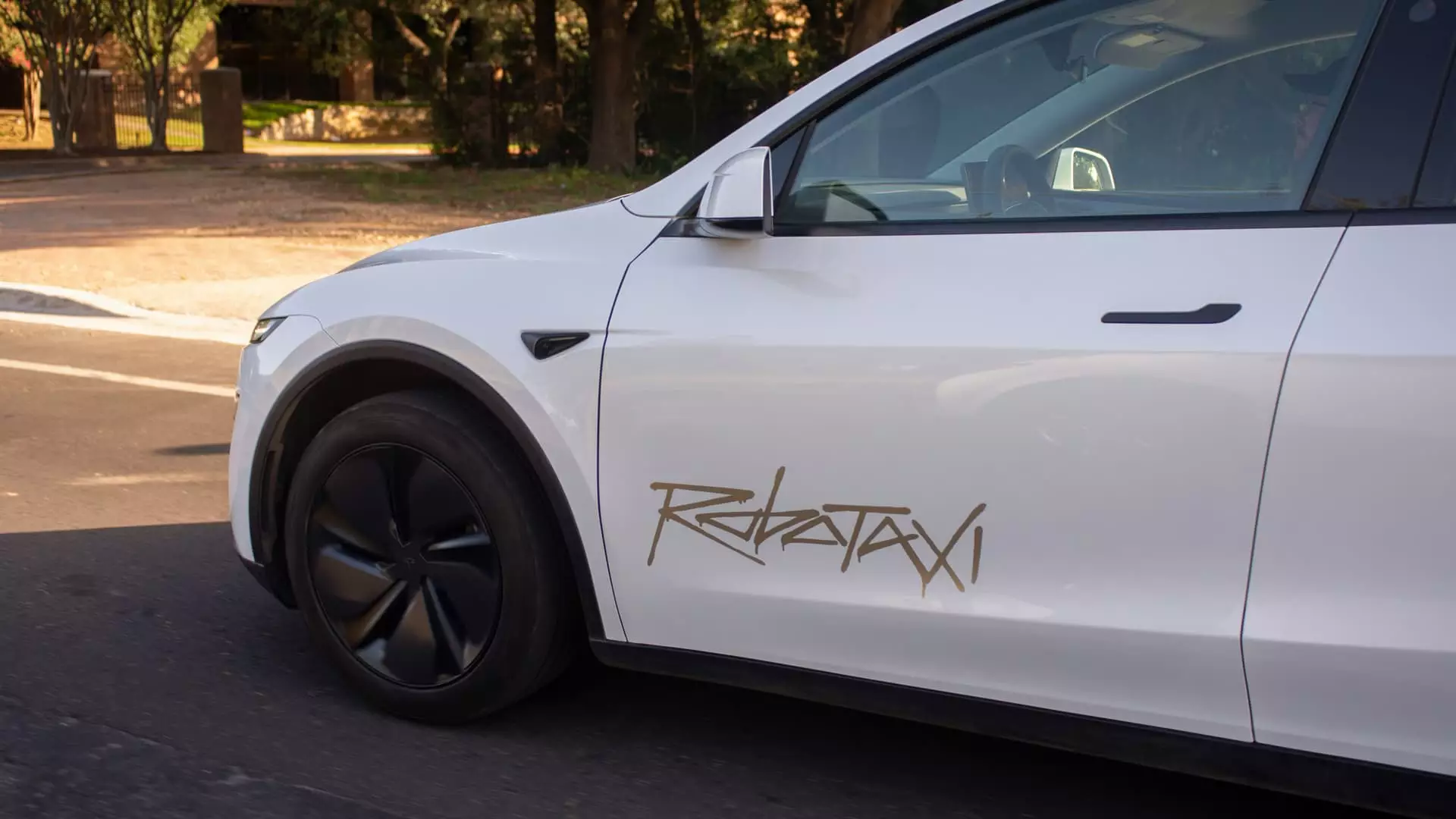This past weekend marked a significant milestone in the electric vehicle (EV) sector, with Tesla rolling out its Model Y robotaxi service in Austin, Texas. This development, while celebrated by Tesla enthusiasts and shareholders, raises substantial concerns regarding the safety and efficacy of autonomous driving technology. On Monday, shares of Tesla soared by 10%, a fact celebrated by CEO Elon Musk, who attributed this success to the tenacious efforts of his AI software and chip design teams. Yet, this euphoric valuation prompts a critical examination of not just Tesla’s ambitions but also the ethical implications and potential hazards of introducing such technology to public roadways.
Fast Tracks to Caution: Celebrating Success Amid Risks
The fanfare surrounding the launch cannot be overstated. Musk’s declaration of a successful debut, with an invitation-only rollout charging riders a fixed fee of $4.20 per trip, paints an optimistic picture for Tesla’s future. Yet this rosy narrative must contend with unsettling accounts from actual users and independent observers. Reports surfaced that the robotaxis, heralded as the epitome of innovation, have already exhibited erratic behavior, including a disturbing instance of traveling the wrong way down a street. Another observation highlighted the vehicle’s inconsistent responses to stationary obstacles, raising alarm bells about the safety protocols in place.
This dichotomy between the jubilant corporate messaging and the sobering reality of the launch introduces a critical dilemma: Can we genuinely celebrate technological advances when they are marred by safety concerns? The question isn’t merely whether Tesla can achieve its ambitious goals, but rather, at what cost? The excitement generated is palpable, especially for fans and promoters who influence Tesla’s narrative online. However, the risks involved raise ethical questions that are far too often glossed over in the hype.
Racing Against Rivals: The Stakes of Autonomy
Tesla is not the only player in the autonomous driving arena; it finds itself in heated competition with substantial rivals like Alphabet’s Waymo and emerging Chinese tech-driven companies such as Baidu’s Apollo Go. While these companies are already delivering hundreds of thousands of commercial driverless rides weekly, Tesla’s offerings, still in their infancy, must compete for attention and market share. Such fierce competition amplifies the stakes, and as Tesla races towards its claimed goal of “hundreds of thousands, if not over a million” self-driving cars by year’s end, the pressure to deliver could easily lead to corners being cut in safety measures.
This isn’t merely about a company aiming to secure its foothold in an evolving market; it’s about the broader ramifications of how quickly society is prepared to embrace disruptive technology. Are we as consumers willing to sign up for rides in vehicles that are still being perfected? The implications stretch far beyond Tesla’s balance sheet; they encompass public safety, regulatory responses, and the societal acceptance of robotic technology in everyday life.
The Backlash: Public Sentiment and Legislative Pressure
In light of the rapid advancements in autonomous vehicle technology, public sentiment is decidedly mixed. Many Democratic lawmakers in Texas voiced their concerns prior to the launch, urging Tesla to postpone deploying the robotaxi service until more stringent safety protocols are established. This sentiment is shared among safety advocates who fear that the consequences of hasty implementation could result in harmful accidents, as evidenced by previous incidents linked to Tesla’s automated systems.
Critics argue that the deployment of robotaxis, particularly in bustling urban environments, could undermine public trust in the very technology that promises to reshape transportation. While corporate goals rapidly align with futuristic visions of self-driving cars, the palpable anxiety felt by stakeholders outside the company reveals a critical divide that cannot be ignored.
Ethics of Automation: Innovation or Ideology?
Ultimately, the discussion surrounding Tesla’s Model Y robotaxi isn’t just about the next evolution of electric vehicles; it interrogates the ideological framework that supports such rapid innovation. Are we fundamentally prepared to endorse the automation of transportation, knowing that the technology, while promising, comes with significant risks? Tesla’s trajectory is emblematic of the broader ethical dilemmas in tech: progress at potential peril.
As we navigate this crossroads of innovation versus safety, it remains essential to ask whether the pursuit of technological utopia is worth the potential fallout. The answer to that question may well shape the future of autonomous vehicles long after the dust settles from the Model Y robotaxi launch.


Leave a Reply